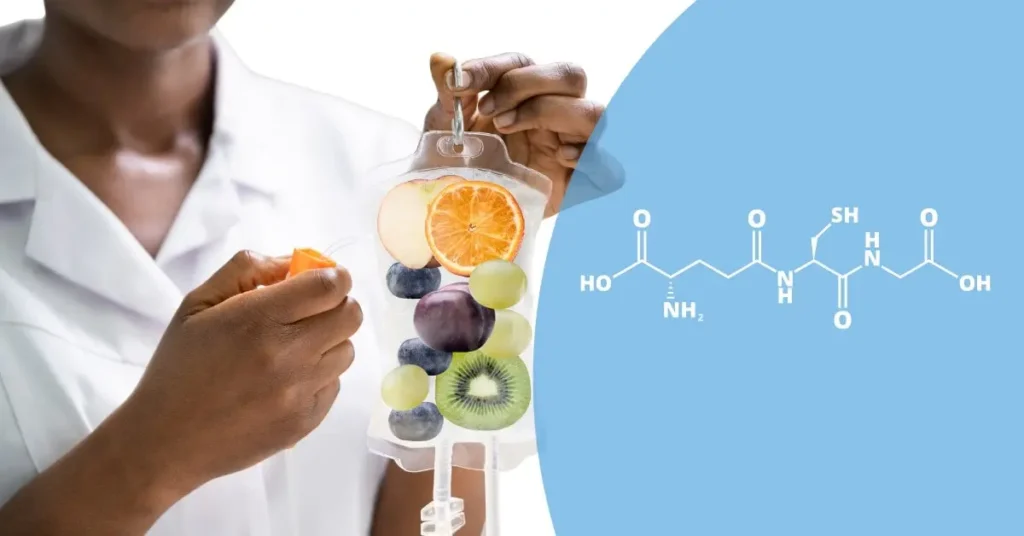The MANY Glutathione Benefits
Glutathione is a powerful antioxidant that is produced naturally by the body. It is made up of three amino acids: cysteine, glycine, and glutamic acid. Glutathione is found in every cell in the body, and it plays a role in many important functions, including:
Protecting cells from damage.
Glutathione is an antioxidant, which means that it helps to protect cells from damage caused by free radicals. Free radicals are unstable molecules that can damage cells and lead to disease.
Detoxifying the body.
Glutathione helps to detoxify the body by removing harmful substances, such as heavy metals and environmental toxins.
Boosting the immune system.
Glutathione helps to boost the immune system by supporting the production of white blood cells.
Protecting the liver. Glutathione is important for liver health. It helps to protect the liver from damage caused by alcohol, drugs, and other toxins.
Promoting brain health.
Glutathione is important for brain health. It helps to protect the brain from damage caused by free radicals and it also helps to improve cognitive function.
Emerging Evidence Of Glutathione Benefits
There is some evidence that glutathione may also have other health benefits, such as:
Protecting against cancer.
Glutathione may help to protect against cancer by helping to repair damaged DNA and by preventing the spread of cancer cells.
Improving skin health.
Glutathione may help to improve skin health by reducing inflammation and by protecting the skin from damage caused by the sun.
Reducing the risk of heart disease.
Glutathione may help to reduce the risk of heart disease by helping to lower cholesterol levels and by preventing the formation of plaque in the arteries.
However, more research is needed to confirm these benefits and we are not herein making any such claims that are not permitted by the American Medical Association or the FDA.
Natural Ways To Boost Glutathione
There are a few ways to increase glutathione levels in the body. One way is to eat foods that are high in glutathione, such as asparagus, broccoli, Brussels sprouts, and spinach. Another way is to take glutathione supplements. However, it is important to talk to your doctor before taking glutathione supplements, especially if you have any underlying health conditions.
Conclusion
It is also important to note that glutathione levels can be affected by stress, alcohol consumption, and certain medications. If you are concerned about your glutathione levels, talk to your doctor. They can recommend a blood test to check your levels and advise you on how to increase them.
References:
Return to IV Drip Page by clicking the button:

